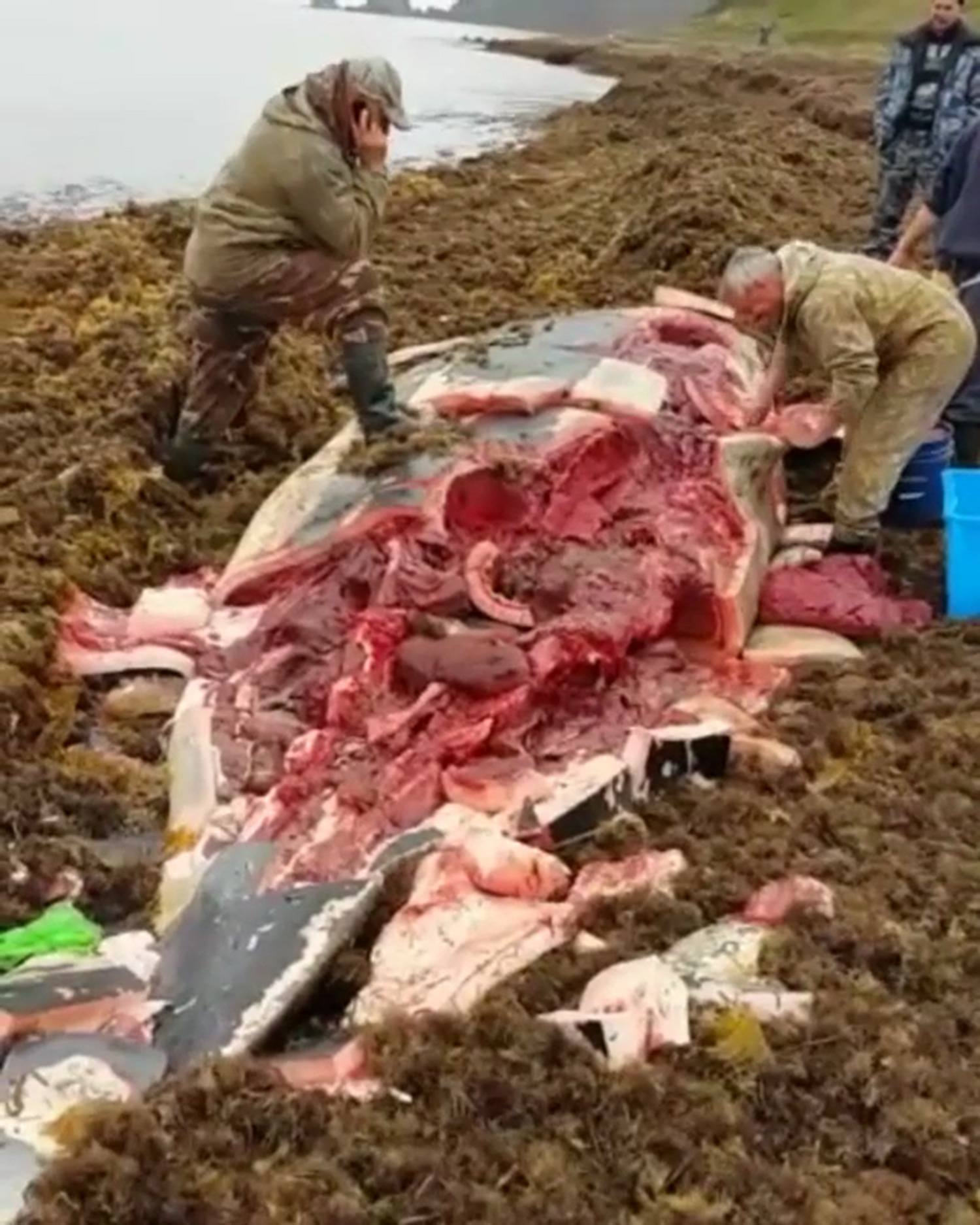With concerted effort, people saved a stranded orca
The five-to-six ton orca was caught on a rocky shoreline in low tide. The orca called out for help and a passerby heard it, discovered the stranded animal, and phoned volunteer rescue groups who help in these types of situations. Members of The Guardians from Hartley Bay and Whale Point spent the day keeping the orca wet and cool. It was covered in thin sheets to shield its delicate skin from the sun and was regularly bathed with water from a hose attached to a tank until the tide returned more than eight hours later. Volunteers stated on social media that the orca kept “crying” while they were trying to help it. The rising water eventually lifted the orca off the rocks and it swam away, reuniting with its pod.
Lamentably, similar stories can have a different ending…
However, a baby whale stranded on the beach in the coastal town of Bolshoy Kamen, Russia, wasn’t so lucky. When locals discovered the poor baby had washed ashore and was stranded, they chose not to help it. Instead, they cut it up and ate it. The baby whale was still alive when it became stranded. Footage has been floating around social media showing a group of men hacking into the mammal. One photo shows a man standing on it, while the group and cameraman can be heard laughing throughout the video.
In a world where animal abuse and neglect unfortunately occurs, have humans become immune to stepping up and saving animals when they desperately need it?
Why should we care?
Today, six out of the thirteen great whale species are classified as endangered, even after humans have spent decades trying to protect them. Whales sit at the top of the food chain and play a key role in the marine environment. There also is a moratorium on commercial whaling and a ban on the international trade of whale products. However, there are still people who hunt whales and utilize them for profit or personal gain. In fact, several international wildlife groups will train the people who live in areas where these strandings tend to occur to teach them how to save these endangered species. Featured photo credit: YouTube/TheGlobeandMail via youtube.com
